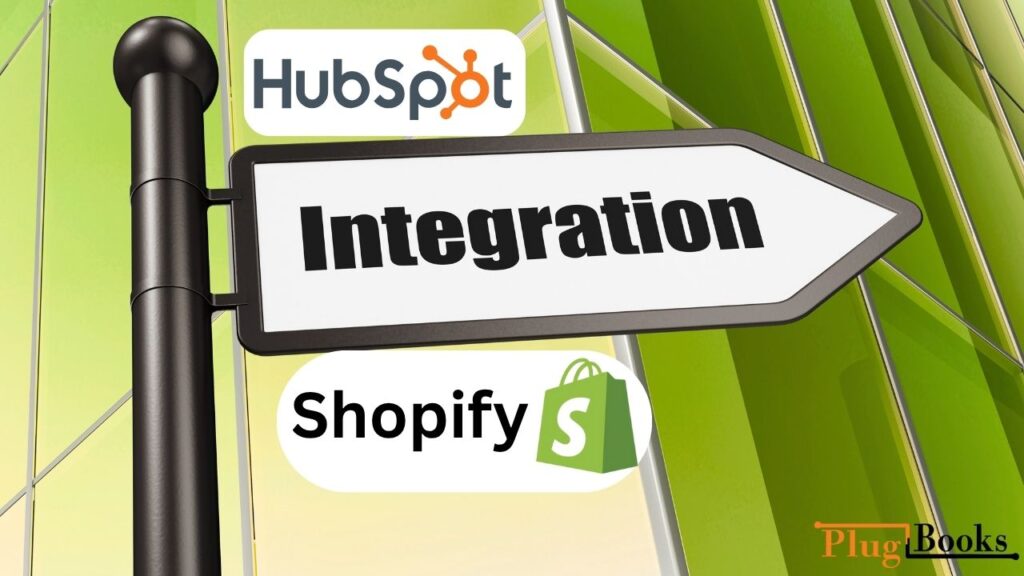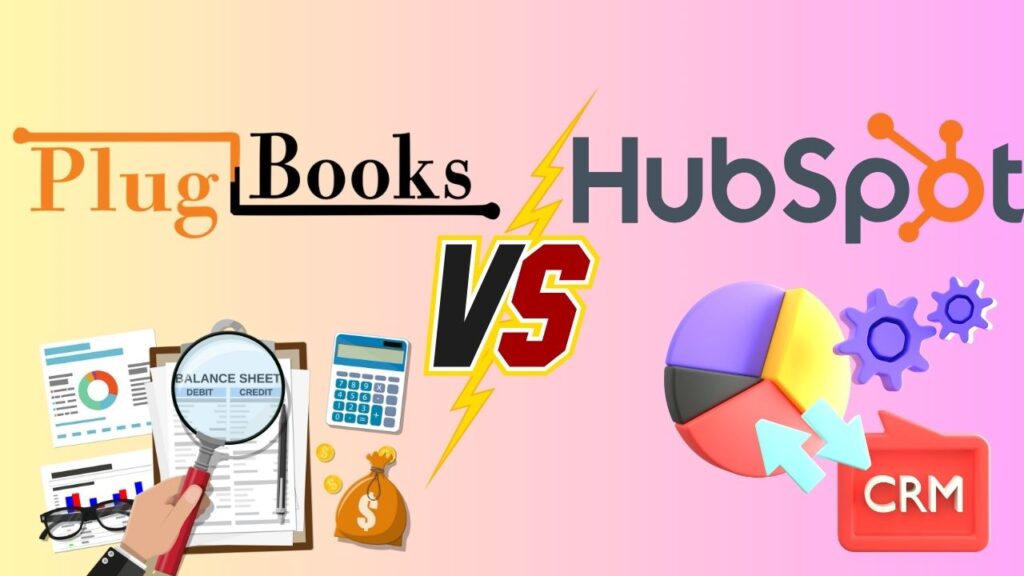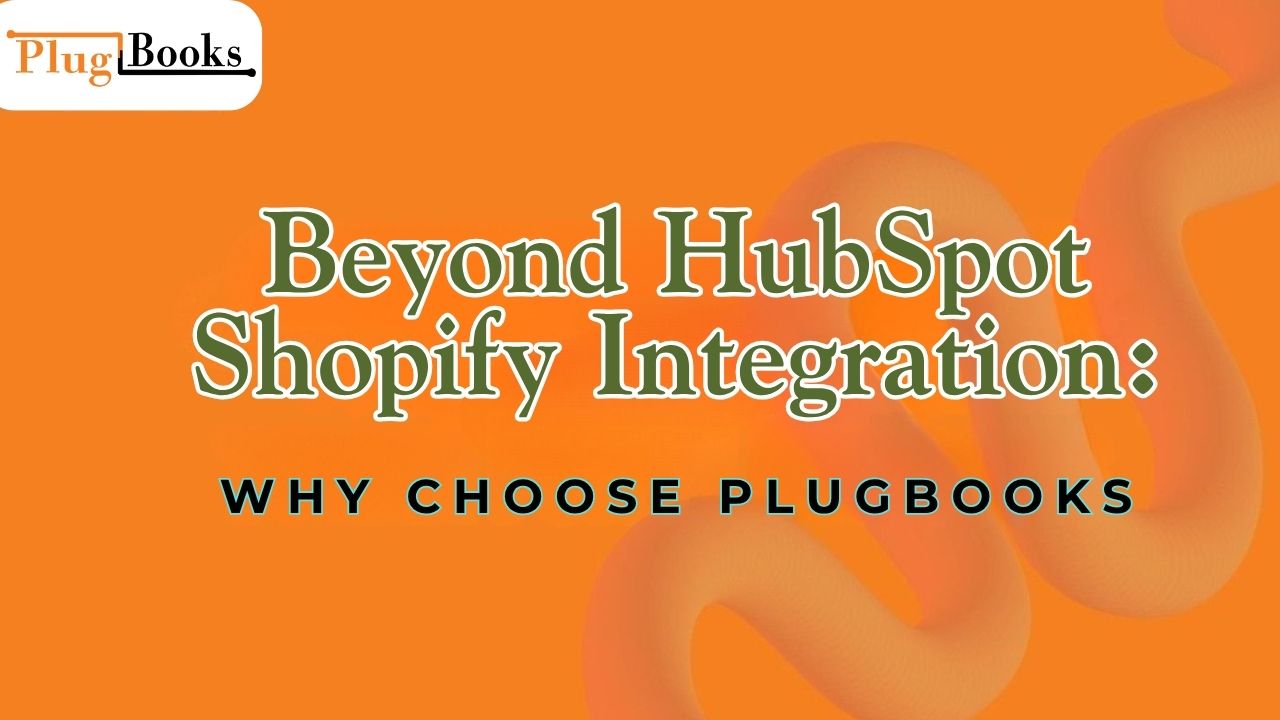HubSpot Shopify integration is a popular search for sellers running eCommerce businesses, as it helps manage customer relationships and campaigns. And while this is great for marketing, it doesn’t solve one of the biggest pain points: accounting and bookkeeping.
This is where PlugBooks makes the difference. By connecting Shopify, Amazon, and eBay directly with QuickBooks and Xero, PlugBooks ensures your financials are automated, accurate, and tax-ready—something Shopify integration with HubSpot simply doesn’t cover.
Keynotes
- HubSpot Shopify integration focuses on CRM and marketing, not accounting.
- PlugBooks integrates Shopify, Amazon, and eBay with QuickBooks & Xero.
- Automation tracks payouts, fees, and COGS in real time.
- Financial reports become reliable and tax-ready.
- PlugBooks supports multi-channel growth beyond hubspot and shopify integration.
What is HubSpot Shopify Integration?
The integration between Shopify and HubSpot connects your online store to HubSpot’s CRM.
This lets HubSpot link up all of your customers and order data right away. Some benefits are:
- Sending out email marketing campaigns.
- Grouping clients based on how they act.
- Keeping track of abandoned carts and sending recovery emails.
- Learning about how customers move around your business.
But here’s the catch: even if integrating HubSpot and Shopify is great for marketing, it doesn’t handle bookkeeping, accounting, or synchronizing with QuickBooks and Xero. That gap means that merchants have to do work by hand.

The Missing Piece: Accounting Automation for eCommerce
Sellers need marketing tools, but they also need to keep track of their money correctly. If you only use Shopify and HubSpot together, you still have to do your books by hand. Some common problems are explained in detail here.
- Mistakes in reporting transactions.
- Hours wasted balancing finances.
- Stress from filing taxes.
- You can’t see what your real earnings are after fees and reimbursements.
That’s why automation matters. Shopify hubspot integration is great for marketing, but sellers also need PlugBooks to automate financial data.
Why PlugBooks is the Better Fit for Accounting Needs
PlugBooks.io is for sellers who want their accounting to be done correctly. PlugBooks automates the money side, unlike HubSpot and Shopify integration, which focuses on CRM.
Automatic syncing:
- This links QuickBooks and Xero with Shopify, Amazon, and eBay.
- Real-time tracking of sales, refunds, fees, and COGS for accurate transactions.
- Ready for several channels: Not just for Shopify.
- Automation that saves time: cuts down on mistakes and saves hours every month.

PlugBooks vs HubSpot: Key Differences
| Features | HubSpot Shopify Integration | PlugBooks Integration |
| Customer management (CRM) | ✔️ Yes | ❌ Not focus |
| Marketing automation | ✔️ Yes | ❌ No |
| Accounting & bookkeeping | ❌ No | ✔️ Yes |
| QuickBooks/Xero sync | ❌ No | ✔️ Yes |
| Multi-channel (Amazon/eBay) | ❌ No | ✔️ Yes |
| COGS & fees tracking | ❌ No | ✔️ Yes |
It’s clear: shopify hubspot integration helps you market better, but PlugBooks ensures your finances stay clean.

Benefits of PlugBooks for eCommerce Sellers:
- No more stress over bookkeeping.
- Every sale, charge, and refund goes straight into your accounting system, so you can be sure of accurate reporting.
- Tax readiness: Books are kept up to date so that the tax season goes smoothly.
- Scalability: As your business grows, it will work with Shopify, Amazon, and eBay.
Real-Life Example
A Shopify seller put money into integrating HubSpot and Shopify to get more people to interact with their business. The campaigns went smoothly, but when tax season came, QuickBooks had to manually match up hundreds of transactions.
After they added PlugBooks, all of their transactions synced up on their own. HubSpot continued to help with marketing, but accounting got a lot easier. This proved that combining Shopify with HubSpot and PlugBooks makes a full company solution.

In conclusion
The HubSpot Shopify integration is great for marketing and customer relationship management, but it doesn’t help with accounting. Sellers need both sides—getting customers involved and keeping track of their money accurately—for their businesses to thrive fully.
That’s why more online businesses are choosing PlugBooks than Shopify Hubspot integration. It handles your bookkeeping automatically, works with QuickBooks and Xero, and lets you sell on several channels—all while working with your marketing strategy.
FAQs
Q1. What does hubspot and shopify integration do?
It connects your Shopify store with HubSpot CRM for customer data, email marketing, and sales insights.
Q2. Does shopify hubspot integration handle accounting?
No, it only focuses on CRM and marketing—not bookkeeping or syncing with QuickBooks/Xero.
Q3. How is PlugBooks different from shopify integration with hubspot?
PlugBooks automates accounting by syncing orders, fees, and refunds into QuickBooks and Xero, giving sellers accurate financials.
Q4. Can I use HubSpot and PlugBooks together?
Yes. HubSpot runs your marketing, while PlugBooks manages your accounting. Together, they cover both business needs.
Q5. Why do sellers choose PlugBooks over just hubspot and shopify integration?
Because PlugBooks saves time, eliminates manual work, ensures tax-ready books, and supports growth across multiple sales channels.



